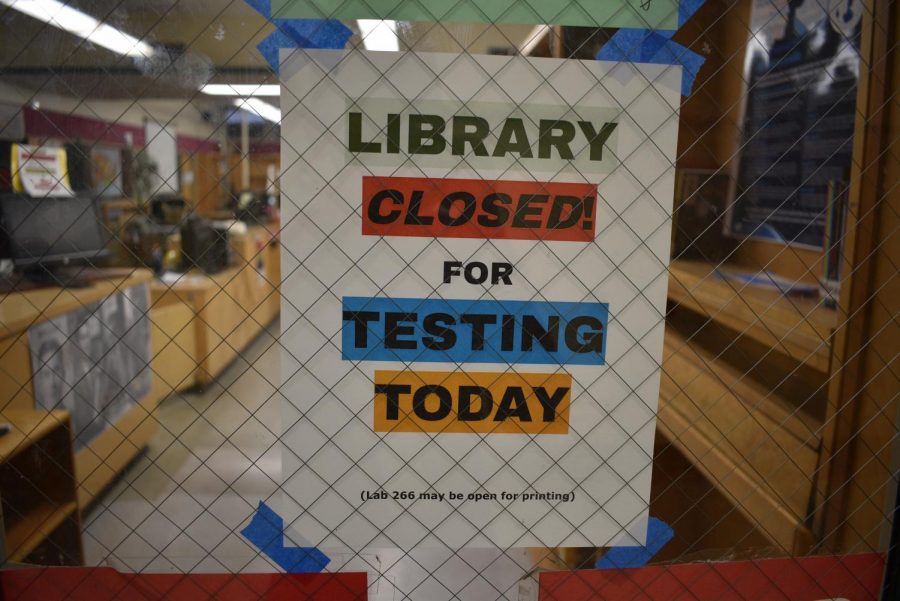State Testing: Participation Makes a Difference
Clarion photo Alex Cheriel
The Cleveland Library was closed for the week of February 11-15 for state testing.
February 19, 2019
Cleveland juniors took the Oregon State Science test February 12-15. Still to come are the English Language Arts and Mathematics tests. These assessments hold great importance as they are used by the Oregon Department of Education to evaluate school success.
The Oregon Department of Education (ODE) expects at least 94.5 percent of high school juniors to participate in state testing. Cleveland’s numbers have dropped each of the past three years. In the 2017-18 school year, only 14 percent of Cleveland juniors participated in the Math test and 59 percent in the English test.
“SBAC tests were set up by the state to be the primary avenue for meeting the (English and Math Essential Skills) graduation requirements,” said Cleveland Vice Principal Kristy Mize. However, many students meet these requirements through work samples or college entrance exams before the state tests take place. For this reason, many students choose to opt out of the state tests.
“If you’ve already met the graduation requirements, just giving the state data is not a very compelling reason to take the tests,” said Mirabella Miller, Cleveland senior.
The ODE uses several metrics to measure student success. These include attendance, four-and-five-year graduation rates, and state test scores. Cleveland’s graduation rate this year rose to 91.5 percent, earning the school excellent marks in that category. Cleveland meets the benchmark in most categories but fails in state testing.
It is very important for Cleveland to meet ODE expectations in all categories. “The majority of our funding comes from the state, and to receive funding, we have to comply by these rules,” Mize explained.
The expectation is for at least 80 percent of students to pass the tests. However, students who do not take the test are counted as Not Passing, so until participation rates increase, Cleveland stands no chance at meeting the benchmark. If Cleveland continues to fail to earn passing marks, ODE may require the school to get support or create a plan for improvement.
This issue is not unique to Cleveland. High schools across Portland Public Schools are not meeting participation benchmarks. “One of our best tools for gathering data on student success is through our state assessments and I am stressing the importance of participation to give our leaders access to critical information that can be used in educational decisions and resource allocation,” said PPS Deputy Superintendent Yvonne Curtis in a letter to all PPS staff.
The data is also useful to individual school staff. “I appreciate what the data show us when we have a larger participation rate,” said Cleveland Principal Ayesha Freeman in an email to parents. “It shares with us which students are proficient at nationally normed learning targets, and it shines a bright light on our sub-groups of students who are not proficient.”
Juniors will take the English Language Arts test March 11-20 and the Mathematics test April 22-26 during class. Families may still opt their children out of the tests, however all students are encouraged to participate.











